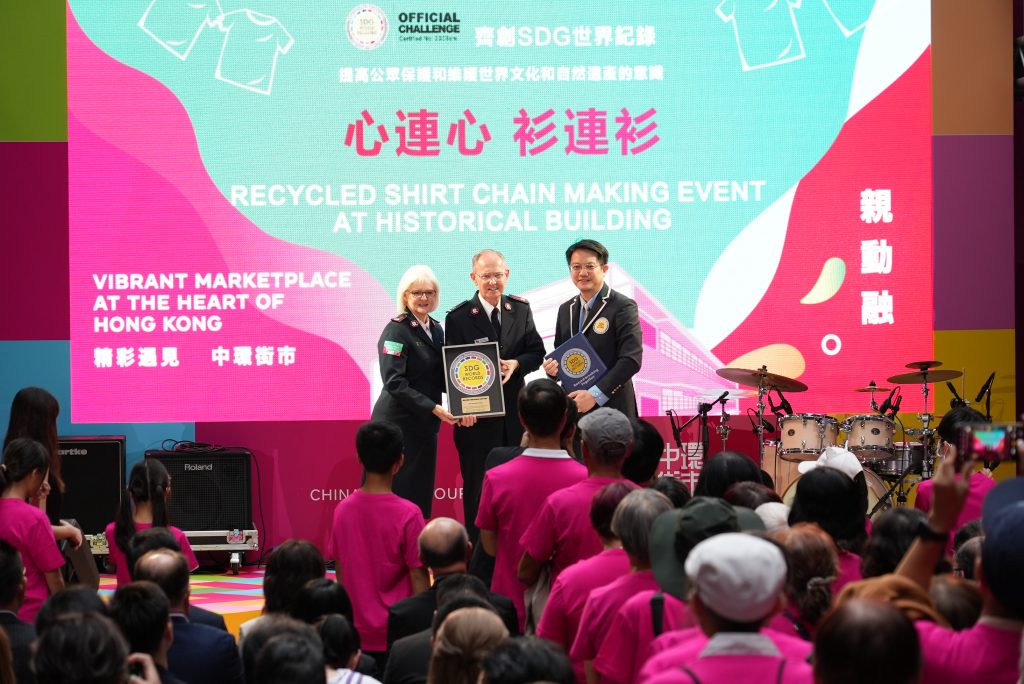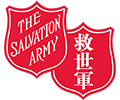
Declaration of The Founder of The Salvation Army:
“While women weep, as they do now, I’ll fight;
While little children go hungry, as they do now, I’ll fight;
While men go to prison, in and out, as they do now, I’ll fight;
While there is a drunkard left,
While there is a poor lost girl upon the streets,
While there remains one dark soul without the light of God,
I’ll fight –
I’ll fight to the very end!”
William Booth (1829-1912)
History of The Salvation Army
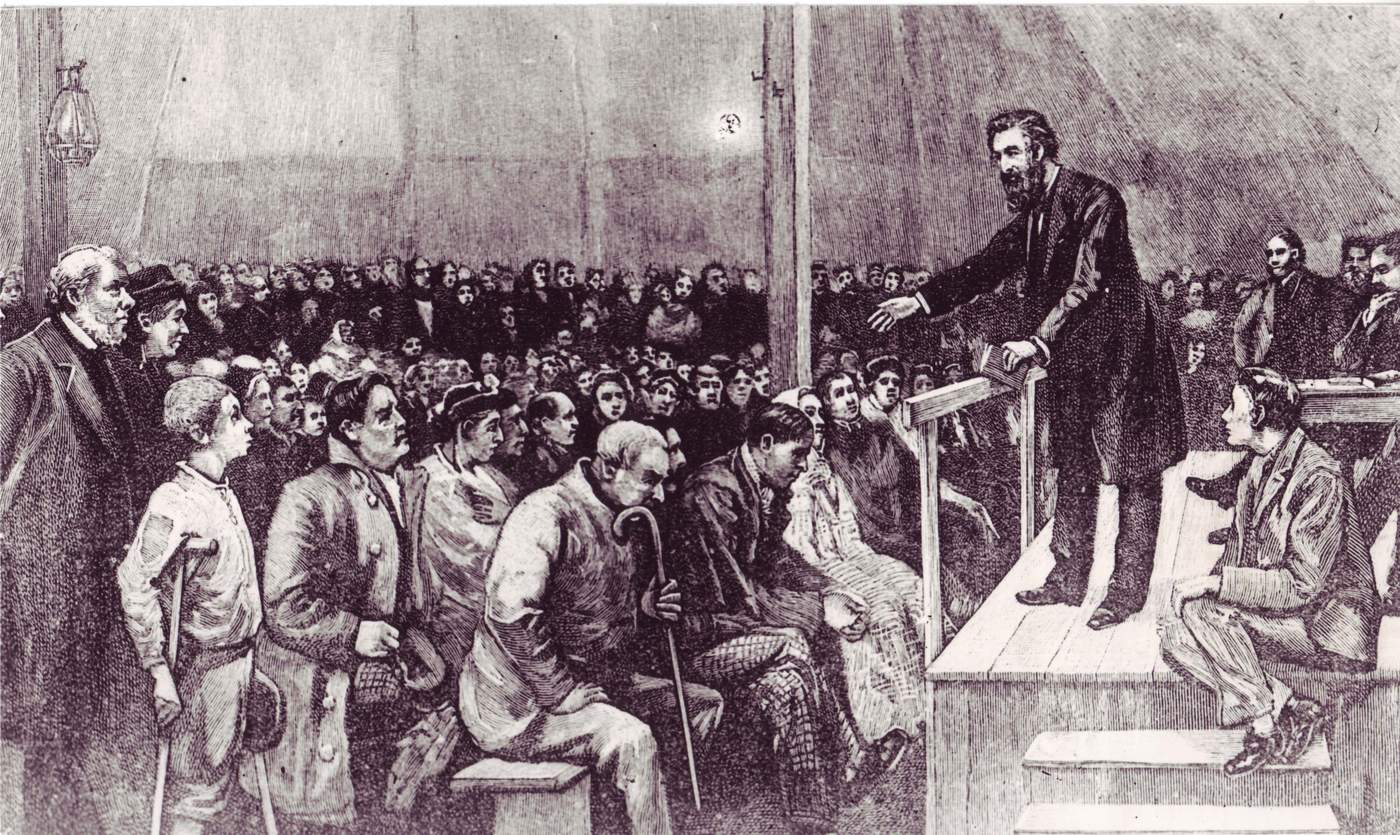
The Salvation Army was founded in 1865 in London, England by William Booth and Catherine Booth. In response to a strong calling from God, the Booths reached out to the poor, the homeless, the hungry and the destitute, and proclaimed the gospel of the Christ.
William Booth’s original aim was to send the new converts to established churches, but he soon realised that the regular churchgoers did not feel comfortable to worship with the new converts. He thus founded East London Christian Mission for these people in the slums of East London. The converts spread out of the East End of London into neighbouring areas and then to other cities.
Booth was reading the 1878 Christian Mission Magazine when he noticed the statement ‘The Christian Mission is a volunteer army.’ Crossing out the words ‘volunteer army’, he penned in ‘Salvation Army’. The name ‘The Salvation Army’ was then adopted. From that point, William Booth was known as ‘General’ by his followers, converts became soldiers of Christ and were also known then as Salvationists. The ‘Army’ was furnished with uniforms, a flag, a brass band and martial music.
The Booths and other officers of the Army endeavoured to expand the kingdom of God through the two-pillar directions of evangelical ministry and social service ministry. Today, the work of The Salvation Army has expanded to 134 countries and areas, meeting human needs in the name of God without discrimination.
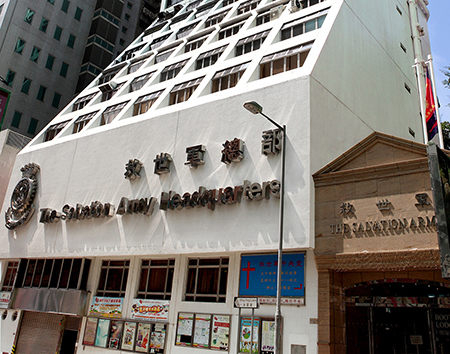
The Salvation Army in Hong Kong
In 1930, by invitation of the Hong Kong Government, The Salvation Army started its ministry in Hong Kong by providing residential care to underprivileged young girls and women. The Salvation Army provides social services and fulfills the mission of proclaiming the Gospel. In the early days, church gatherings were held in open areas. The first corps (church) of The Salvation Army was established in 1937 in Kowloon City.
Affected by the war in the early 1940s, thousands of refugees emerged in the city. The Salvation Army set up a food kitchen to feed the hungry refugees daily. The social environment in Hong Kong became stable in the 1950s. The Salvation Army established schools and provided social services to cope with the increasing welfare demands of the community.
In the following decades, The Salvation Army continued to expand its community services, with schools opened and Corps (Churches) set up. Recycling Programme and Family Stores also operated to promote green living and recycling for charity. Emergency relief programmes were carried out in different countries in need.
In 2020, The Salvation Army celebrated its 90 years of services in Hong Kong. Over nearly a century, The Salvation Army has grown from a small group ministering to vulnerable women and girls, to a multi-dimensional service organisation giving hope and support to all those in need.
In 2023, The Salvation Army enters the 93rd anniversary for serving Hong Kong and ascends to a new stage. From March 1, it will be officially elevated to “The Salvation Army Hong Kong and Macau Territory”, becoming the 9th territory of The Salvation Army in the South Pacific and East Asia Zone. The Salvation Army will continue to provide diversified services and assistance for people in need to cater the times and social changes.
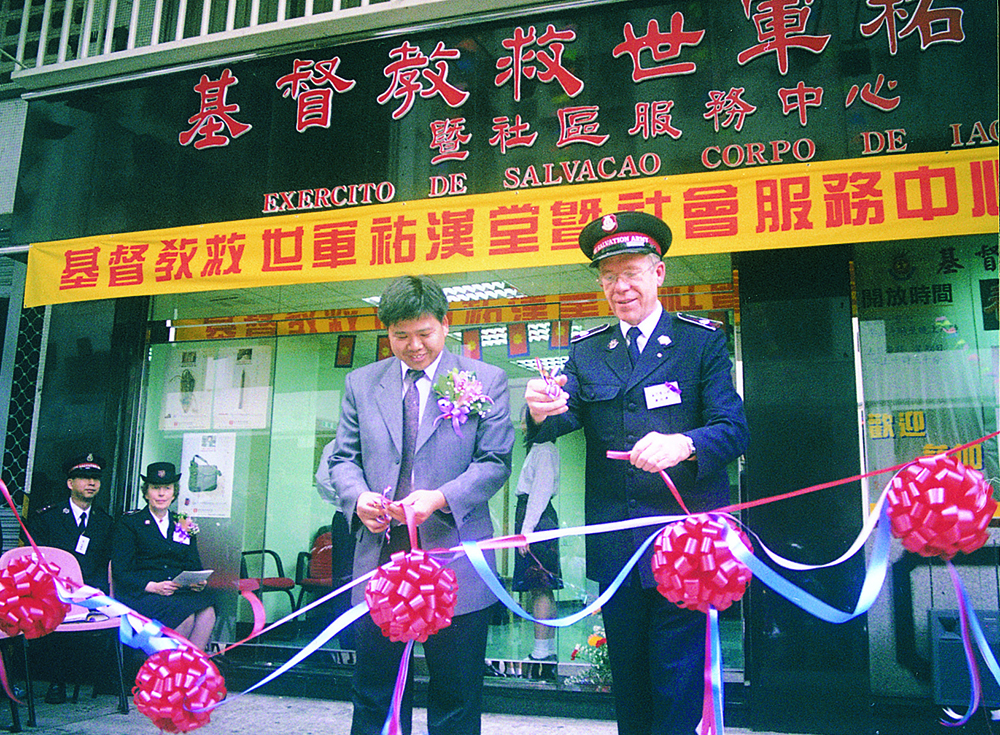
The Salvation Army in Macau
The Salvation Army commenced its services in Macau in 1999 with the setting up of Iao Hon Corps and Community Service Centre. The Corps was officially opened in 2000, and the first Family Store started operations in Macau in the same year. The second store was opened in 2018. Apart from resale of used materials, selected items are delivered to the needy. The Salvation Army Joy Family Integrated Service Centre, the first social services unit of the Salvation Army in Macau, was established in 2014 with the aim of providing services to the local young people and families. In 2017, The Salvation Army (Macau) Education Centre, the Army’s first educational services unit in Macau, was commenced, serving children with special educational needs and their families.
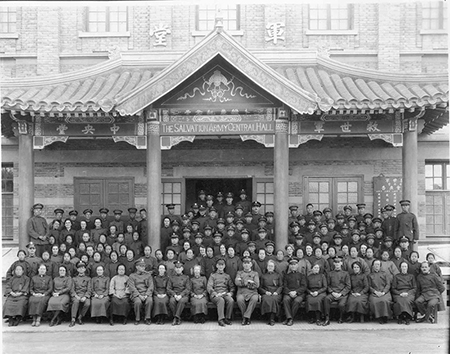
The Salvation Army in Mainland China
As early as 1916, The Salvation Army commenced its services in Beijing, providing assistance to people suffering in wars. During the following decades, hospitals and orphanages were set up in Beijing, Shijiazhuang, Tianjin and other areas, taking care of the countless poor and orphans. In 1988, when a strong earthquake occurred in Gengma County of Yunnan, The Salvation Army started to engage in emergency relief, post-disaster reconstruction and social assistance work. On 1 January 2017, after the official implementation of the Law of the People’s Republic of China on Administration of Activities of Overseas Nongovernmental Organizations in the Mainland of China, The Salvation Army (Hong Kong) Yunnan Office and The Salvation Army (Hong Kong) Sichuan Office were registered in compliance with the law.
Key Milestones
1930-40s
22/01/2020- By invitation of the Hong Kong Government, a Girls’ Home was set up in 1930 to provide residential care to underprivileged young girls and women.
- A food kitchen was set up in Wanchai, giving out free meals to children and refugees. Activities such as literacy classes and worship were also organised for the comers. After the war, the Army was allowed to use the old Wanchai Police Station as a school and kitchen. The place was used for Corps meetings in the evenings and during the weekends.
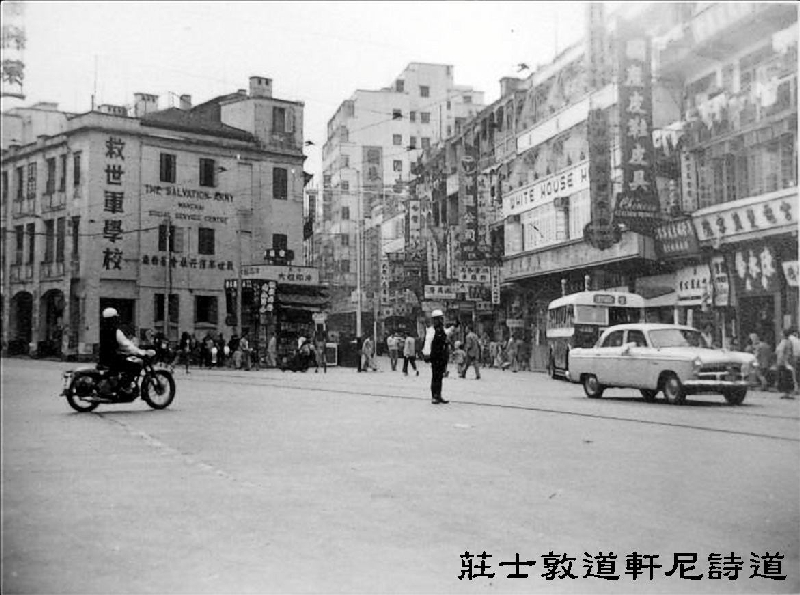
1950-60s
22/01/2020- In 1951, the Headquarters of The Salvation Army was erected at 547-555 Nathan Road. The Government allocated a piece of land in Wanchai for The Salvation Army to build welfare centre and school. Also, a street was named ‘Salvation Army Street’ in recognition of the Army’s contribution to the society.
- During the 60s, The Salvation Army ran vocational training classes, such as haircutting, woodwork, tailoring and sewing for refugees. The Army also built roof-top schools to meet the needs of school-age children.
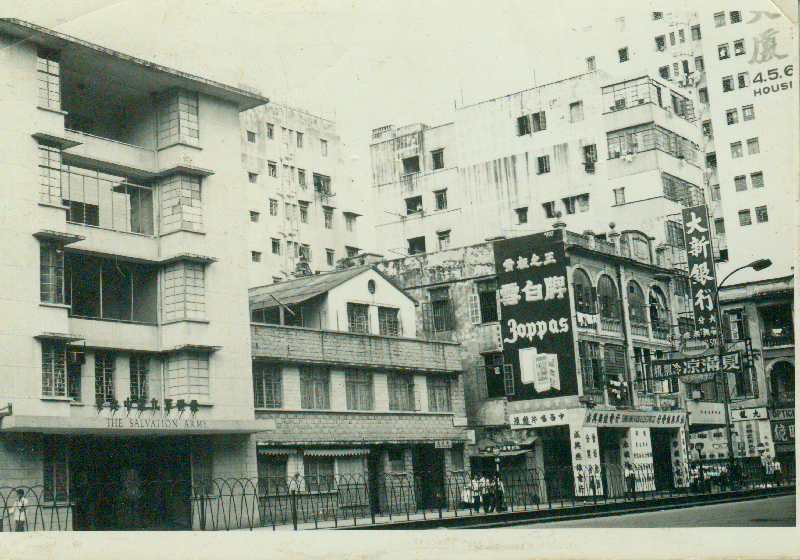
1970-80s
22/01/2020- There was an influx of the Vietnamese refugees into Hong Kong during the 70s. The Salvation Army provided education, social welfare and religious services in two Vietnamese refugee camps.
- The Salvation Army William Booth Secondary School was completed and commenced in 1973 and kicked off a new page for the Army’s education service.
- The Salvation Army headquarters was moved to Wing Sing Lane, Yaumatei in 1985.
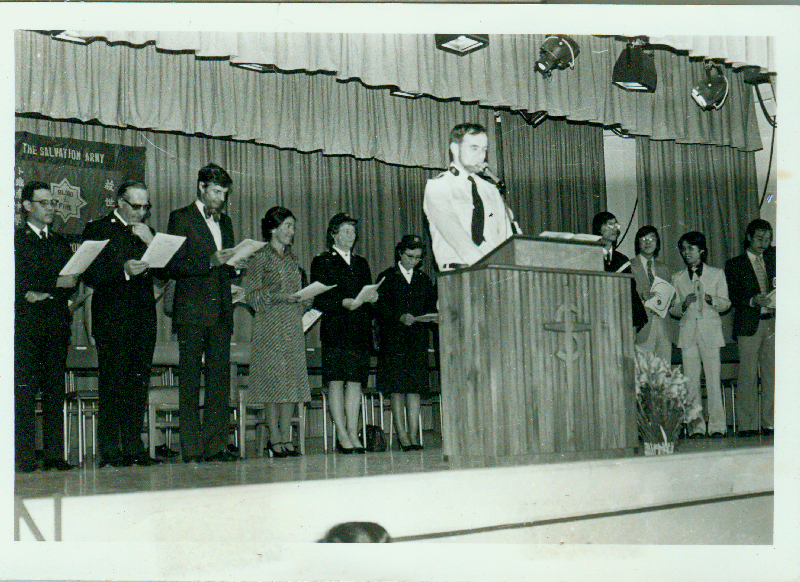
1990s
22/01/2020- The Salvation Army commenced poverty alleviation programmes and participated in flood relief works in mainland China in the 1990s. The China Development Department was officially established in 1994. The Army actively took part in emergency relief efforts, giving a helping hand to people affected by the earthquake in Taiwan and the typhoon disaster in The Philippines.
- The opening ceremony of Shek Wu School, the first Salvation Army special school was held in May 1996.
- The Army was one of the first NGOs in Hong Kong that introduced SAORI weaving in its vocational rehabilitation service in 1998.
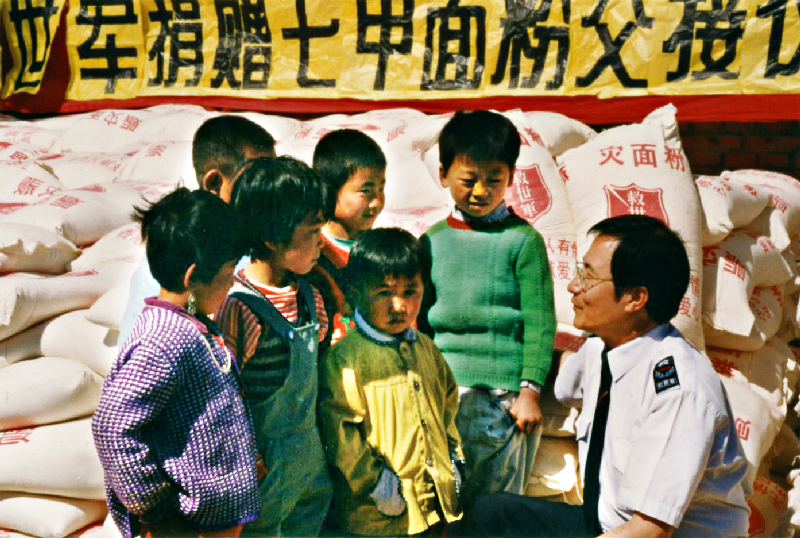
2000s
22/01/2020- Iao Hon Corps (church) officially opened and commenced community services in Macau in 2000. The Command was renamed at the same time as ‘The Salvation Army Hong Kong and Macau Command’.
- An amount of over HK$60 million was raised to respond to the emergency and rehabilitation needs in Indonesia and Sri Lanka during the South Asian Tsunami in 2004.
- After the Sichuan earthquake on 12 May 2008, The Salvation Army was among the first organisations to arrive and provide assistance at the scene. A 4-year relief and rehabilitation programme was carried out.

2010s
22/01/2020- The Army launched a groundbreaking pilot project of hospice and palliative care – ‘Palliative Care in Residential Care Homes for the Elderly’ – in Hong Kong in 2010 and pioneered medical-social joint service for street-sleepers in Hong Kong and launched the first outreach vehicle for the street-sleepers service in 2015.
- The Salvation Army Joy Family Integrated Service Centre, the first social services unit of the Salvation Army in Macau and The Salvation Army (Macau) Education Centre, the first educational services unit of the Army in Macau, commenced services in 2014 and 2017 respectively.
- In compliance with the new policy of the mainland China, the Army has officially registered as an international NGO in Sichuan and Yunnan provinces in 2017.

2020s
23/09/2020- Entering the 90th anniversary, The Salvation Army continues to walk with you and proactively serves the community.
- The novel coronavirus has been raging in Hong Kong and Macau. All this while, our social services units and corps (churches) continue to serve those in need, distributing materials such as surgical masks, anti-epidemic kits, daily necessities and food items to meet their urgent needs.
- As classes in schools were suspended, during this period, our schools in Hong Kong and the Macau Education Centre prepared different e-learning materials and conducted online classes to support children’s at-home learning. In this difficult time, all our units have been doing everything possible to bring love, care and encouragement to everyone in the community.
- It will be elevated from command status to “The Salvation Army Hong Kong and Macau Territory”, becoming the 9th territory of The Salvation Army in the South Pacific and East Asia Zone.
- In 2023, Kam Tin Residence for Senior Citizens became the first ‘Eden Home’ in Southeast Asia and Hong Kong.
- On August 17, 2023, The Salvation Army joins hands ‘Heart to Heart, Shirt to Shirt’ event with partnering company to promote sustainable development concepts and successfully achieved the World Record of SDG.
- In 2023, The Salvation Army’s Palliative Care for the Elderly Project entered Phase V: Golden Adventures.
- In 2025, The Salvation Army entering the 95th anniversary of serving Hong Kong and the 25th anniversary of serving Macau.
